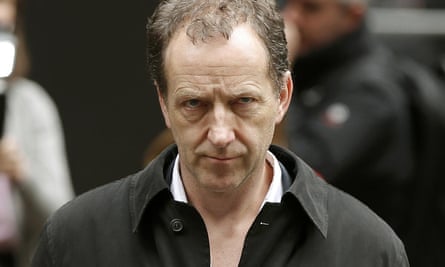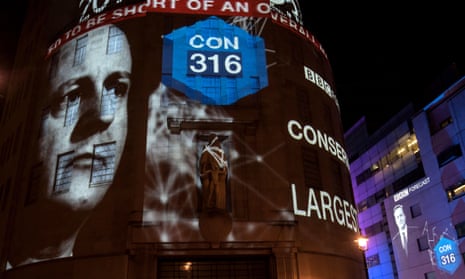Conservative officials threatened the BBC with far-reaching reforms, such as changes to the licence fee funding system, if it did not alter the political balance of its coverage of the general election campaign, Tom Baldwin, one of Ed Miliband’s senior advisers, has claimed.
Baldwin claimed that senior BBC executives and journalists faced repeated threats during that campaign about what would happen if they didn’t change their coverage.
Baldwin makes the assertion in a Guardian article, one of the first comments on the much criticised campaign from Ed Miliband’s own team. His claim was roundly rejected by Conservative officials.
Baldwin writes: “BBC executives and journalists have told me that there were regular, repeated threats from senior Tories during this election campaign about ‘what would happen afterwards’ if they did not fall into line.
He says: “It is a disturbing suggestion that a democratically elected government would seek to stamp on and silence dissent from an independent broadcaster.”
But he claims there “has been a long-standing campaign by the Conservative party, fueled by the commercial interests of sections of the press, to attack the world’s most successful state-funded public service broadcaster as a giant leftwing conspiracy”.
He adds that although he has his own frustrations with the BBC, he describes it as an organisation too precious to lose, contending “it has invested in fairness, seeks balance even when it is impossible to achieve, listens to and absorbs pressure from every political party”.
A senior Conservative official said that Baldwin’s allegations were “complete and utter nonsense”.
John Whittingdale, who has been a critic of the licence fee system, has been appointed culture secretary, an appointment that has led some newspapers to claim the government is going to war with the BBC. Some unattributed briefings have suggested the Conservatives are unhappy at the stance taken by the BBC during the campaign, including over the handling of leader’s TV debates.
Baldwin, in common with many of Miliband’s staff, is being made redundant and says responsibility for the defeat lies with him and all who took the decisions in the campaign. He had informed Miliband he would not have stayed beyond the transitional months in Downing Street if Labour had won.
Baldwin reveals one reason he feels confident that the BBC does not contain a leftwing bias is that he fought and lost a daily battle with the BBC about its coverage of the campaign.
He writes: “Far from being in the pocket of Labour, the BBC was too easily swayed by newspapers that support the Tories and are heavily invested in Labour’s defeat.”
He discloses the party’s biggest dispute with the BBC during the campaign was over “the prominence it gave to the idea of a deal between Labour and the SNP that was never on the cards”.
He writes: “After the first 237 incarnations on news bulletins, I struggled to see how this theme could be developed further, yet the BBC continued to lead with speculation about bizarre consequences of a Labour-SNP government for the economy, tax, and even road schemes.

“At no stage was there an examination of David Cameron, Nicola Sturgeon and Nick Clegg’s motives in playing tag-team with almost identical messages on the same non-existent deal. It was a scare story based on a false premise and some badly flawed polls.”
Labour’s internal polling
Baldwin’s remarks about the polls suggests the Labour party was not overly influenced by internal party polling that was consistently less optimistic than national published polling.
The party’s internal polling showed crossover – the point at which the Conservatives overtook Labour – occurred in the wake of the party conferences in October, but then Labour clawed itself back into the lead in the first few weeks of the short campaign, possibly by offering reassurance on the deficit and immigration. That lead disappeared in the final week, and its focus groups showed the party was being badly hit by the Tory warnings about the threat posed by the SNP. It tried to fight back in the final week with its own warnings about the threat to the NHS posed by a second Tory term, but the story gained little traction partly because the broadcasters had moved to a debate about how a new coalition would be formed, or whether Labour would form a minority government.
Jim Messina, one of the Tory campaign managers, has agreed with Baldwin’s analysis that broadcasters in the UK unlike in the US are heavily influenced by the press. He told the Spectator’s Coffee House blog: “Our research showed when there were big stories or big moments, it was the press that drove that discussion and that is very different.”
He also claimed on the basis of Labour’s polling that the party leadership knew for some time the Conservatives were on course to win more than 300 seats.
In the Coffee House interview, Messina, a former aide to Barack Obama, said: “We predicted 312 seats that morning to Lynton [Crosby] and 316 was right in line with that, so it just kind of validated what we’d been seeing,” he says. “I had thought we were 306 with six days left. So that’s all pretty much in line with the exit poll.”
He is scathing about the British polling industry listing several reasons why they make mistakes, including relying on a 2010 view of the electorate, failing to name the candidate in constituency polling, therefore failing to recognise the incumbency effect, too small sample sizes and failing to mix traditional phone polls with online polling.
Messina said: “It was so clear – especially for the entire last month – that they were wrong, but none of them wanted to hear about it. So the first thing to fixing a problem is admitting you have one.”
There is deep scepticism in the British polling industry that Labour and the Conservatives had private polls way out of line with what they were publishing. The polling industry has set up an independent inquiry into how it managed to get the result wrong.

Comments (…)
Sign in or create your Guardian account to join the discussion